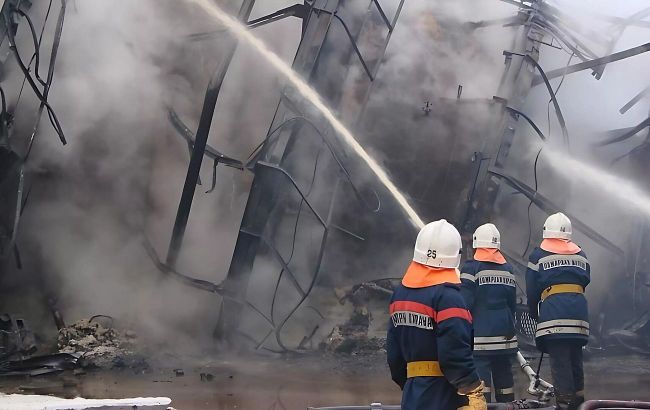ISW reports how Ukrainian attacks affect Russia's oil industry
 Illustrative photo: fire at a refinery Ministry of Emergency Situations of Russia, Volgograd region
Illustrative photo: fire at a refinery Ministry of Emergency Situations of Russia, Volgograd region
Ukrainian Armed Forces strikes on Russian refineries are expected to cause a gasoline shortage across Russia, likely increasing inflation and triggering further macroeconomic instability, according to a report by the Institute for the Study of War (ISW).
On August 28, the Ukrainian General Staff reported that units of the Security Service of Ukraine and the Special Operations Forces carried out a drone strike on the Kuibyshev Refinery in the Samara region. This facility produces gasoline, diesel fuel, fuel oil, and solvents, with a processing capacity of seven million tons per year.
Additionally, the Main Intelligence Directorate of Ukraine and the Drone Systems Forces struck the Afipsky Refinery in the Krasnodar Territory. It has a production capacity of 6.25 million tons of oil per year and plays a vital role in supplying fuel to Russian military forces.
Both refineries are key to Russia’s military industry.
At the same time, the Russian government announced that it will continue the gasoline export ban in an effort to stabilize the domestic fuel market. Russia has occasionally taken such measures since 2022, but recent strikes on refineries have intensified the gasoline shortage and triggered a surge in prices.
The gasoline deficit and price spikes are likely to increase consumer and business expenses across various industries and drive inflation.
According to RBC-Ukraine, citing experts, in August 2025, Ukrainian drone strikes and scheduled maintenance caused record losses in Russia’s oil refining sector.
Total primary oil refining capacity in Russia reached 6.4 million tons, 65% higher than previous estimates. At the same time, drone strikes caused shutdowns of 3.1 million tons, or nearly half of the total impact.
Ukraine’s actions have significantly affected Russian oil capacity, putting about 17% of refineries out of operation, equivalent to 1.2 million barrels per day.

